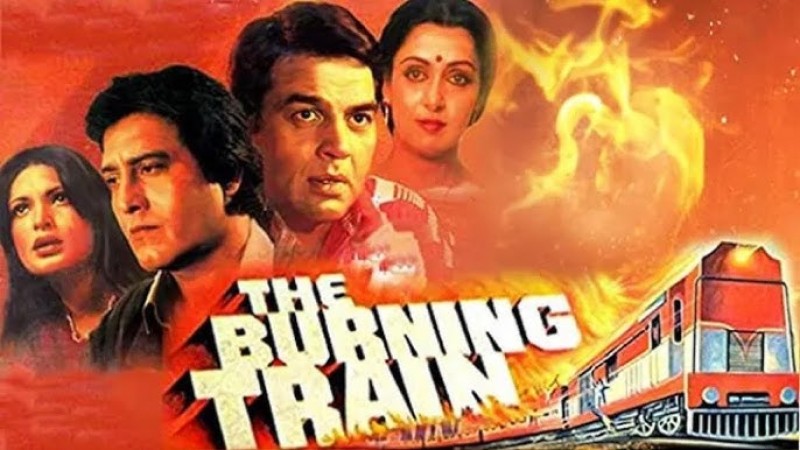
Bollywood's "The Burning Train" is a 1980 release that has since earned a special place in Indian cinema history as a timeless classic, despite not blowing up the box office during its initial run. The journey of the movie, which was directed by Ravi Chopra and starred a large ensemble cast of renowned actors, from a lukewarm reception to classic status exemplifies the enduring power of storytelling, cutting-edge filmmaking techniques, and a devoted fan base that values cinematic artistry beyond commercial success.
The storyline of the movie is based on a fictitious account of a perilous railway mishap involving an explosives-laden train. The "Super Express," a luxurious train outfitted with the newest technology and transporting a cargo of explosive chemicals, is first introduced at the start of the narrative. A race against time begins when a saboteur ignites the train, trying to stop a devastating explosion.
Some of the most well-known actors from Indian cinema at the time are represented in the ensemble cast, including Dharmendra, Vinod Khanna, Hema Malini, Parveen Babi, and Jeetendra. The narrative is enriched by each character's distinct motivations and conflicts, which add depth to "The Burning Train" and explore themes of sacrifice, heroism, and redemption.
The groundbreaking use of special effects and action scenes in "The Burning Train" is one of the things that makes it stand out as a classic. For its time, the movie's spectacular stunts and realistic train-related scenes were quite audacious. Along with his crew of technicians and stunt coordinators, director Ravi Chopra pushed the limits of what was conceivable in Indian cinema in 1980. The film's technical mastery is especially evident in the dramatic train crash scene.
Given the technology at the time, the movie's visual effects were excellent. The audience was drawn into the heart-pounding action by the realistic depiction of the burning train and the ensuing chaos, which added a level of authenticity to the storytelling.
The soundtrack for "The Burning Train" was masterfully created by R.D. Burman and features lyrics by Sahir Ludhianvi. The songs, which included the popular song "Pal Do Pal Ka Saath Humara," gave the story emotional depth and contributed to the movie's enduring appeal. The song not only struck a chord with the listeners when it was first released, but it also remains a favourite among music lovers.
"The Burning Train" had a mediocre box office performance and received mixed reviews from critics when it was first released. While the film's ambitious storytelling and technical accomplishments were praised, some reviewers criticised the pacing and character development of the screenplay.
A number of factors, including competition from other releases and perhaps the inability of the Indian audience at the time to fully appreciate the grandeur and technical excellence that the film offered, could be blamed for the movie's lacklustre box office performance.
The lasting legacy of "The Burning Train" distinguishes it from many other films. Despite mixed reviews at first, the movie gradually rose to cult status thanks in large part to its distinctive storytelling, avant-garde production methods, and unforgettable scenes. It has developed a devoted following over the years that continues to appreciate and celebrate its contribution to Indian cinema.
The storyline of the movie, which centres on selflessness and bravery in the face of impending disaster, resonates with viewers of all ages. It exemplifies the strength of solidarity and selflessness, two concepts that cut across time and cultural barriers.
Today's filmmakers continue to draw inspiration from "The Burning Train" and use it as a model when attempting to produce intense action scenes and compelling stories. Its influence can be seen in the way Indian cinema has developed, where directors and producers strive to push the envelope of what is possible in terms of storytelling and technical excellence.
A movie's true value cannot always be determined by how well it performs at the box office, as "The Burning Train" demonstrates. It has outlasted its period and location of origin to establish itself as a classic in Indian cinema. Cinephiles and aspiring filmmakers alike hold a special place in their hearts for the movie thanks to its enduring appeal, innovative filmmaking, and timeless themes. As the years pass, "The Burning Train" keeps shining brightly in the annals of Bollywood, serving as a constant reminder that a movie's true worth lies in its capacity to connect with viewers of all ages.
Mumtaz Askari's Journey from Skepticism to Stardom in 'Loafer' (1973)
'Flash Forward' and Its Transformation into 'Action Replayy'